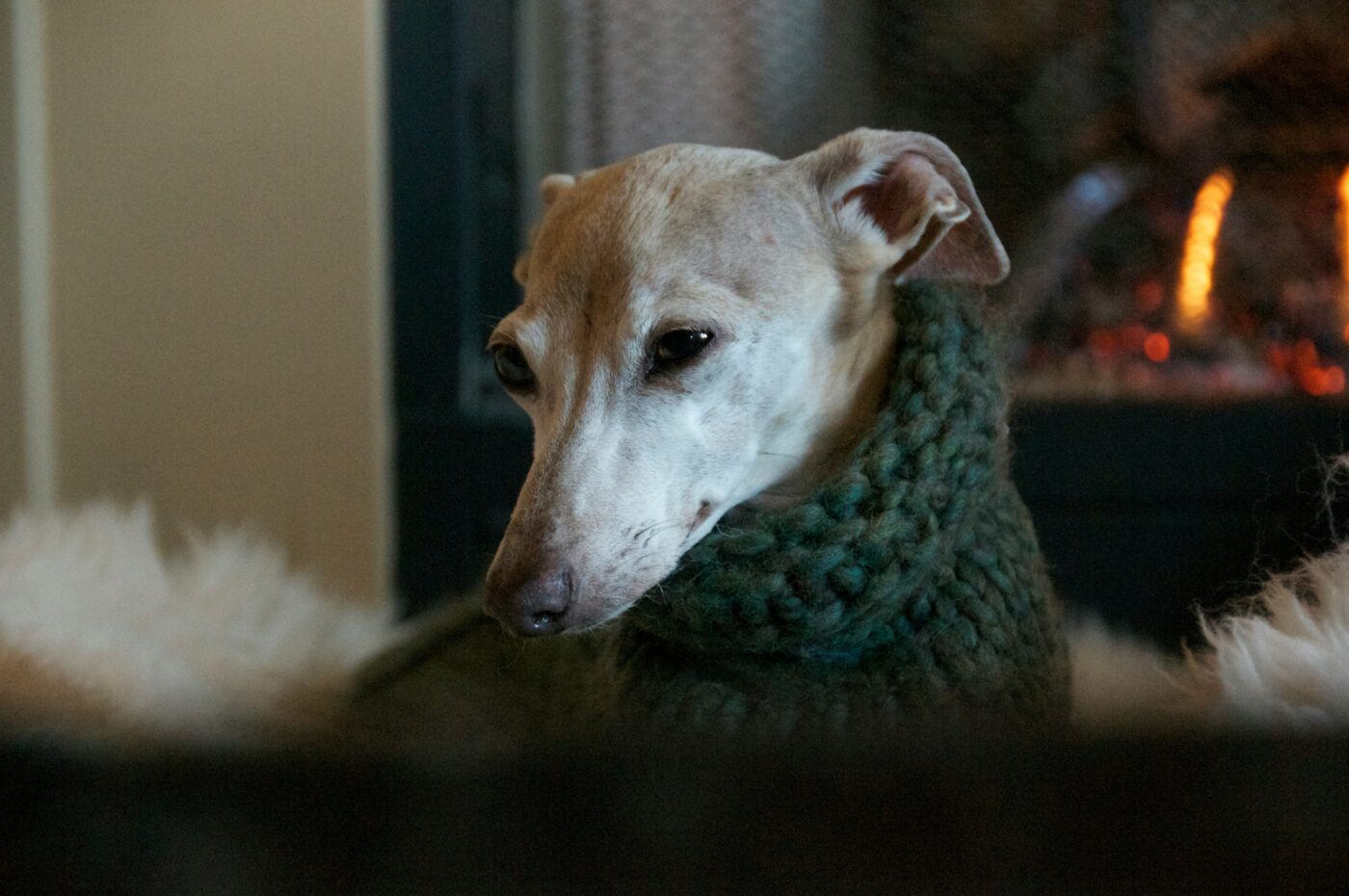 Shutterstock
Shutterstock
In the colder months, it’s important to ensure our dogs are prepared for the drop in temperature. While some breeds joyfully embrace snow and ice, others are more sensitive to the cold and require extra care when winter arrives. If you live in a colder climate and either own or are considering getting one of these breeds, it’s essential to take steps to keep them warm and comfortable throughout the winter season. Proper protection can help them stay healthy and happy during the chilly months.
Chihuahua
 Shutterstock
Shutterstock
The Chihuahua is the smallest breed of dog named after its homeland of Chihuahua, Mexico. The breed is very old and originates in a warm, desert climate, resulting in a small, thin-coated dog that does not fare well in colder climates. Even the long-coated variety will need some extra help staying comfortable in winter weather.
Chinese Crested
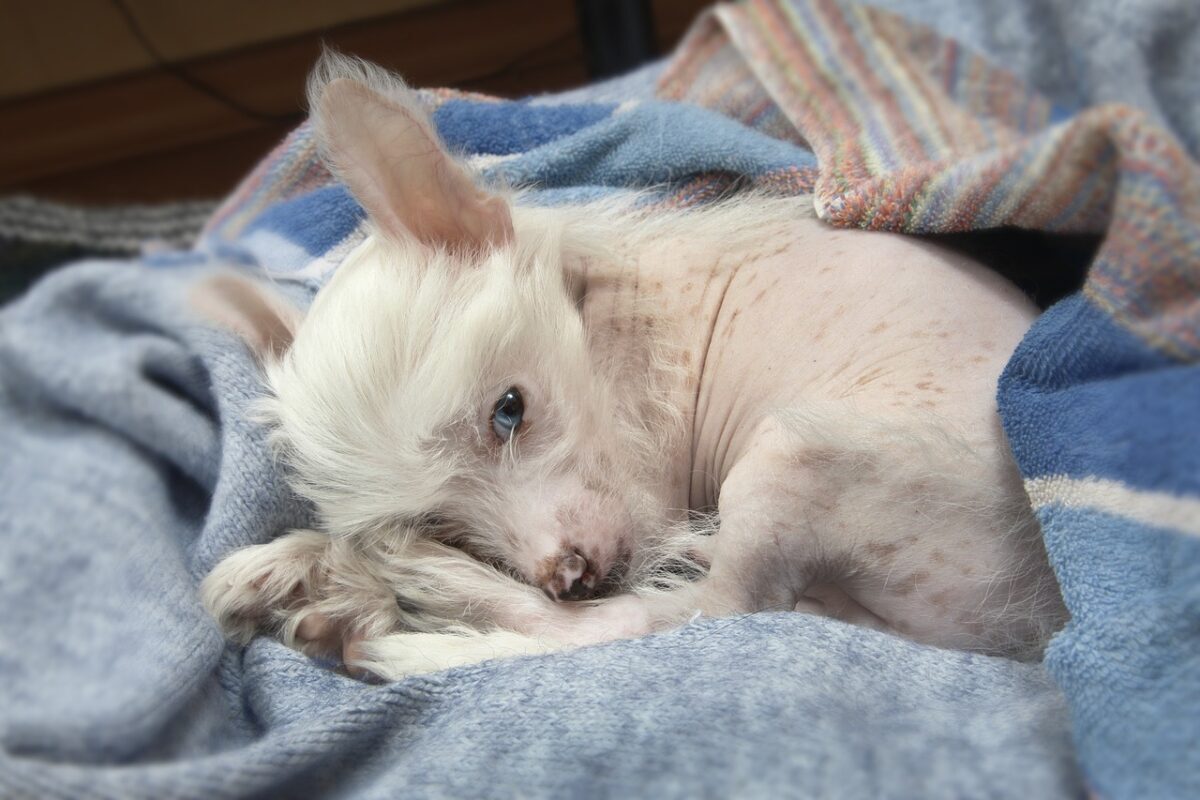 Shutterstock
Shutterstock
The Chinese Crested comes in a hairless and powder puff variety, but neither is prepared for a harsh winter. They were originally bred for hunting rats on Chinese ships but are now lively and affectionate family companions. Because of their thin coats or lack of coats, they require extra care when outside in the cold.
Greyhound
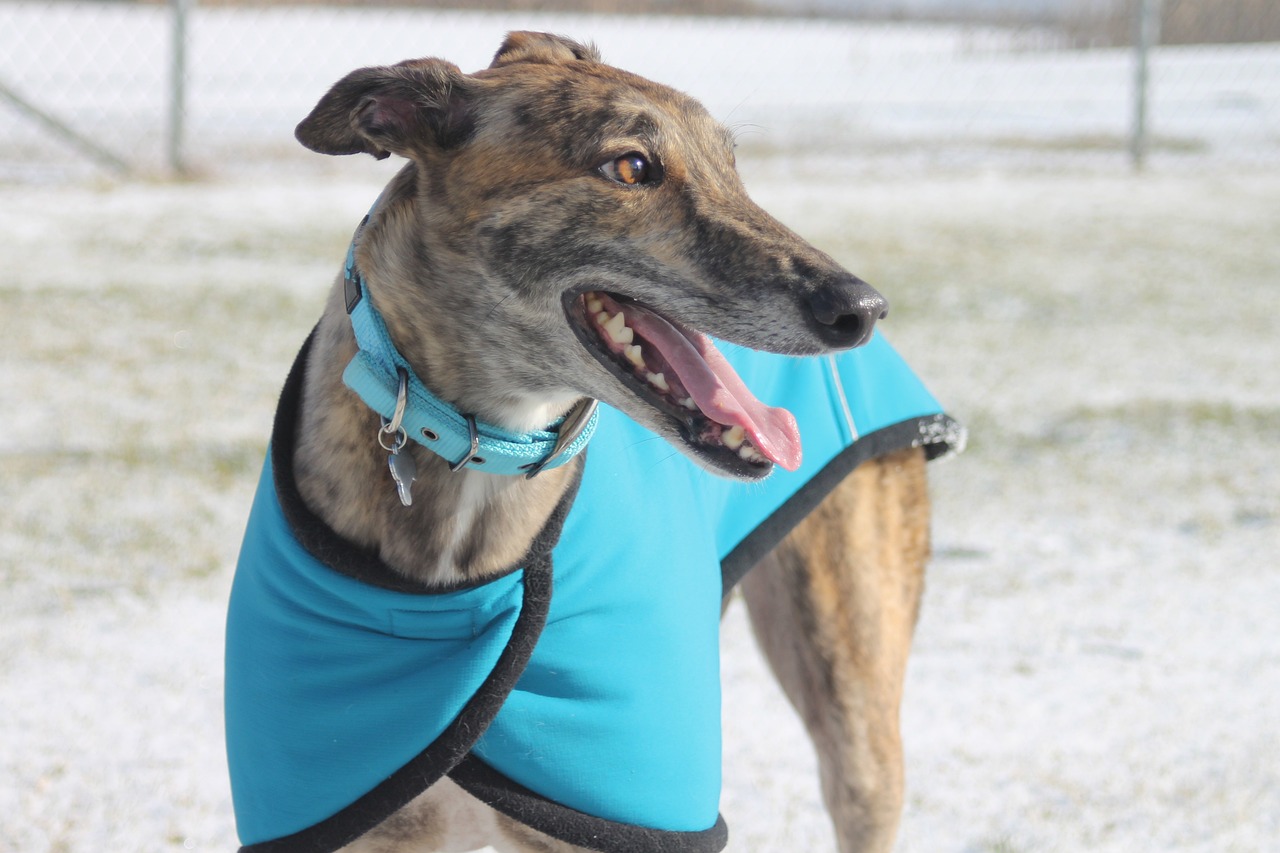 Shutterstock
Shutterstock
The Greyhound is an ancient breed, originally bred for hunting and racing. They are tall, slender dogs built for fast sprinting in desert climates. This means they are not well-suited for colder temperatures as they lack body fat and proper structure to carry enough for harsh cold.
Italian Greyhound
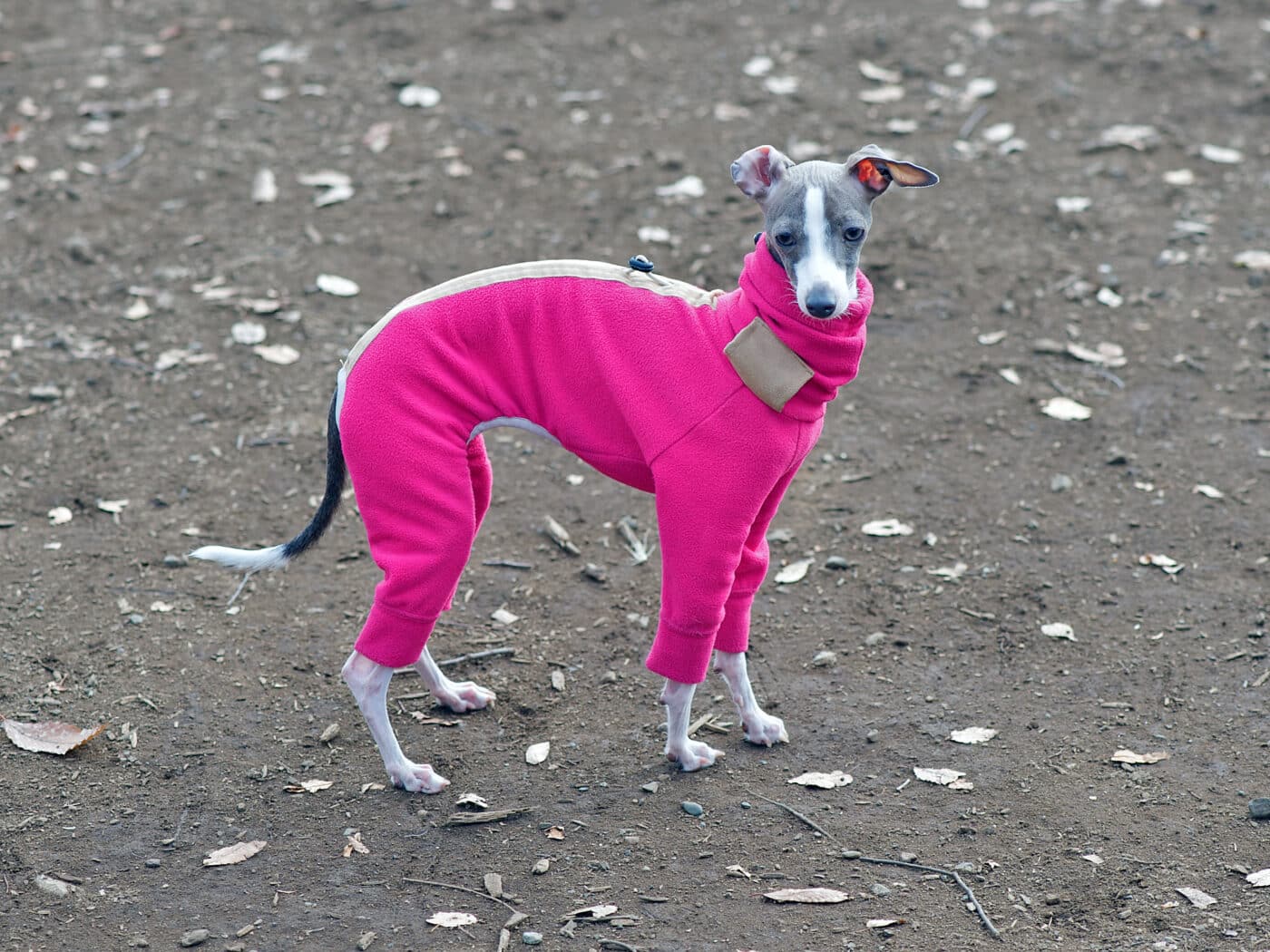 Shutterstock
Shutterstock
The Italian Greyhound is a small sighthound, often considered a miniature version of the Greyhound. Like the Greyhound, they have long, slender bodies that carry very little body fat. Because of this, they are very sensitive to cold weather and often need sweaters to go outside in the winter months. That said, they make wonderful companions and require relatively little exercise.
Miniature Pinscher
 Shutterstock
Shutterstock
The Miniature Pinscher is a small dog originating from Germany. Despite their small size, they are independent and assertive dogs that are not recommended for novice owners. However, they have thin coats and little body fat and have a hard time in colder climates.
Rat Terrier
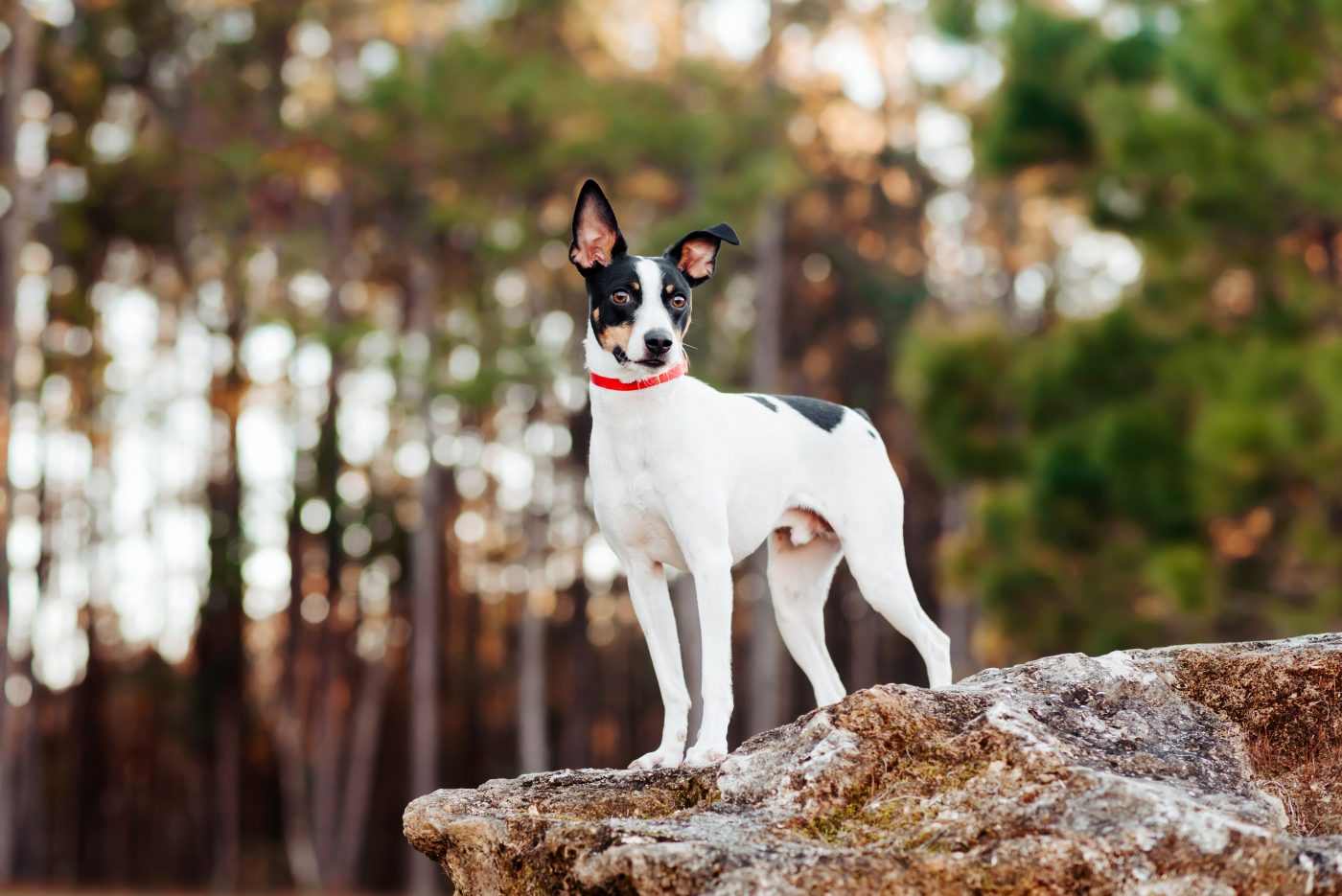 Shutterstock
Shutterstock
The Rat Terrier originated as a farm and hunting dog and is now used for pest control and as a companion. They have a typical terrier-like personality but are more relaxed than many other breeds. Because of their thin coats and small size, they are sensitive to cold climates.
Saluki
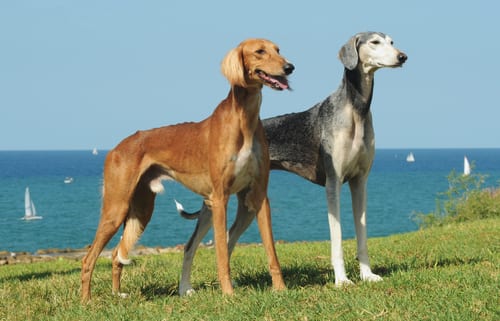 Shutterstock
Shutterstock
The Saluki is a sighthound originating from Persia. These long, slender dogs are powerful and muscular, but they lack the proper body structure to do well in colder climates. That said, they still excel as hunting and racing dogs today and do best in active homes without small animals, as they are prone to chase them.
Toy Fox Terrier
 Shutterstock
Shutterstock
The Toy Fox Terrier is a small terrier breed descended directly from the larger Fox Terrier. They are very intelligent and active dogs that do well with various training and even make suitable companions for elderly and novice owners. They are small-framed dogs with thin coats that do best in warmer climates.
Whippet
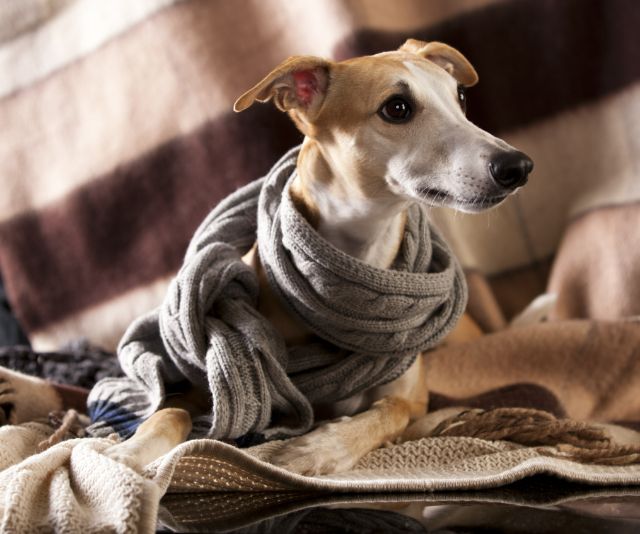 Shutterstock
Shutterstock
Like the other sighthounds, the Whippet is a slender dog that often needs additional support and care in colder climates. They are active dogs when outdoors but relaxed inside. They are independent but affectionate dogs that make great family companions.
Yorkshire Terrier
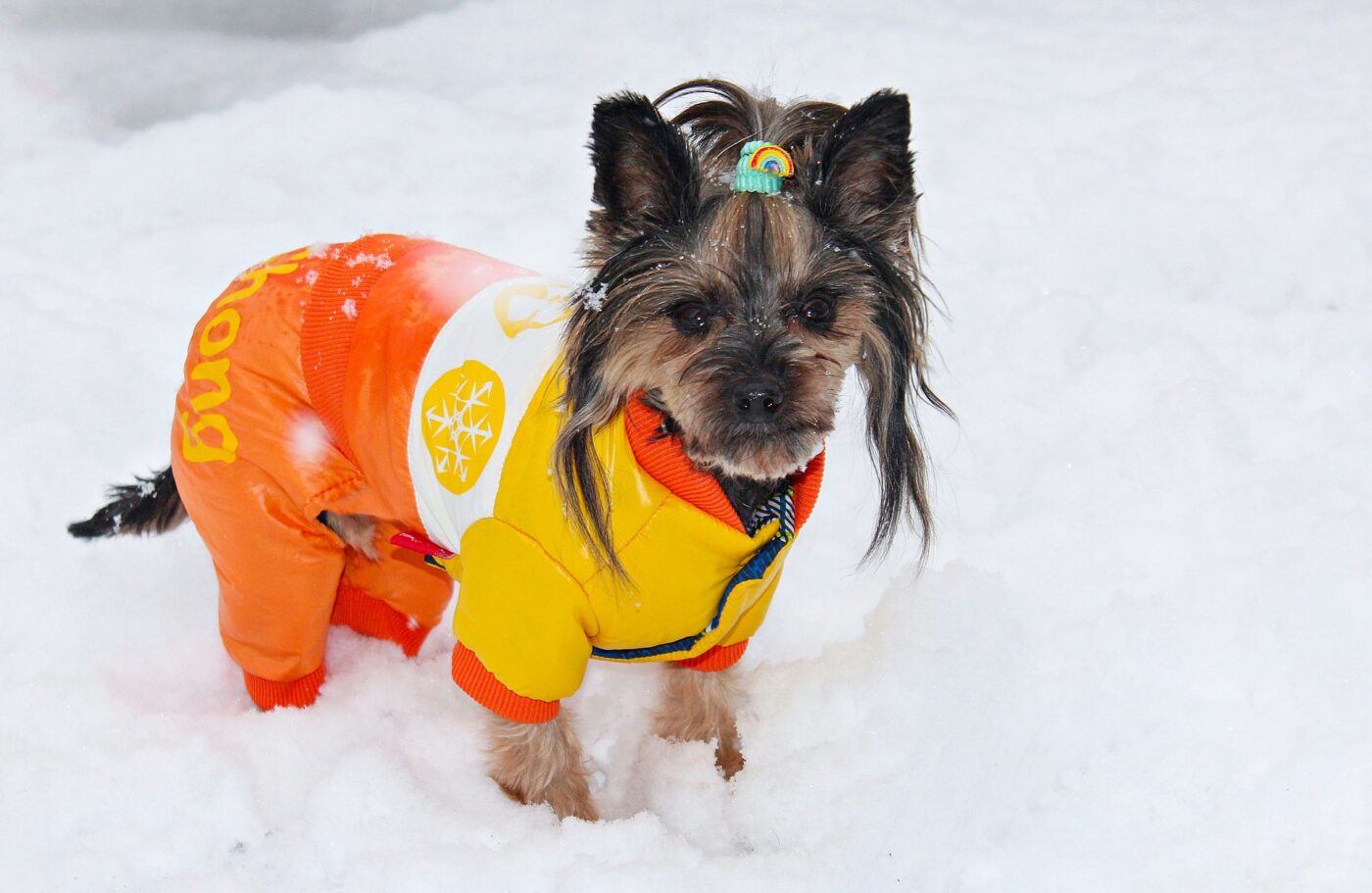 Shutterstock
Shutterstock
The popular Yorkshire Terrier originated as a ratting dog but is more often seen now as a lovely companion. They have long coats that are thin and, therefore, do not offer much protection against the cold. This means the breed does well with a little extra warmth when out during the winter months. They are active, intelligent little dogs that make great companions for those ready to take on a small, feisty pup.
Keeping Your Pup Cozy In Chilly Climates!
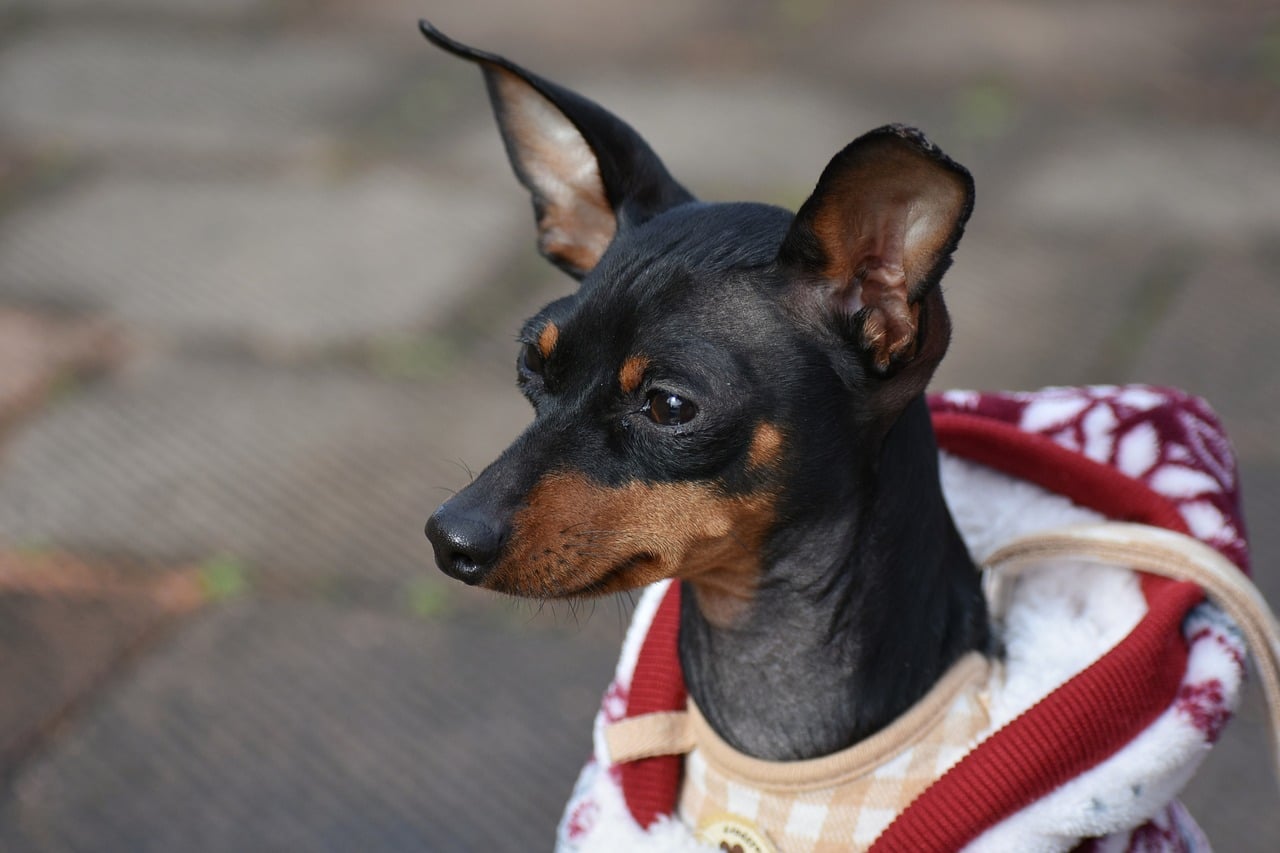 Shutterstock
Shutterstock
Regarding dog breeds sensitive to cold weather, it’s essential to take extra precautions to ensure their comfort and well-being during the colder months. These breeds may require additional warmth, such as sweaters, coats, or indoor heating, to keep them cozy and protected. Monitoring their behavior and health closely during cold spells is crucial to prevent serious conditions like hypothermia or frostbite. You can help your cold-sensitive dog stay warm, happy, and healthy throughout winter by providing the right care, protection, and attention.
 Toledo, United States.
Toledo, United States.